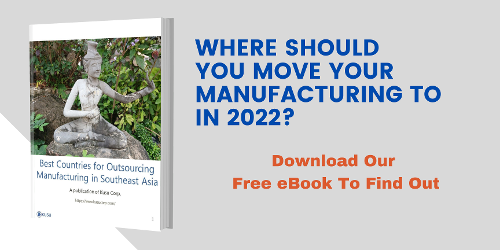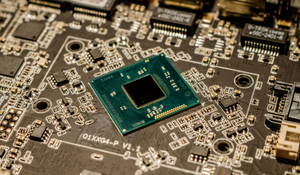When the US-China trade war broke out in 2018, many were surprised. Prior to the outbreak, the two...
Doing Business with Taiwan: Political Risks You Should be Aware of
The country with the largest manufacturing of semiconductor chips, Taiwan, is an important partner to most economies and an especially critical partner to companies manufacturing electronics.
However, foreign companies interested in partnering with Taiwan should be aware of the political challenges associated with conducting business there, mainly those pertaining to its geopolitical environment.
The most explicit challenge centers around historical tensions between Taiwan and neighboring China. This article will explore both the challenges and the geopolitical environment around Taiwan to offer you and your company a better understanding of the issues at hand.
Key Contentions Between China and Taiwan
Tensions mainly revolve around Chinese territorial claims over Taiwan, in addition to the issue of which of the two countries have the right to be 'THE China' (Taiwan refers to itself as the 'Republic of China' whereas China refers to itself as the 'People's Republic of China). According to ABC News, China asserts Taiwan is a province that broke away after it lost the Chinese Civil War and will one day be reunified with the mainland.
However, KMT - the Taiwanese party that favors warmer relations - and CCP officials previously agreed to the 1992 Consensus. The Diplomat writes that the Consensus established the “common” understanding that there exists only one China, possibly under the “One Country, Two Systems” framework proposed by China.
However, Taiwan believes it is the “One China” and that the mainland and the island belong to it. That being said, this is becoming an increasingly divisive issue amongst the Taiwanese. The ruling DPP, the party of current Taiwanese President Tsai Ing-Wen, has historically backed independence. The Chinese consider any declaration of independence a major red line.
The Council on Foreign Relations adds “Tsai also pledged that she would ‘conduct cross-strait affairs in accordance with the Republic of China Constitution, the Act Governing Relations Between the People of [the] Taiwan Area and the Mainland Area, and other relevant legislation.’ Beijing, however, rejected this formulation and cut off official contacts with Taiwan.”
Potential for Open Conflict
Despite continued tensions, experts and officials remain divided on the possibility and timing of armed conflict between Taiwan and China. In the past, China has attempted to reaffirm its claims by force. There have been two Taiwan Straits Crises thus far, in 1954 and 1958, in which Taiwanese islands were shelled, naval battles occurred, and amphibious landings took place.
At the same time, China has also passed the 2004 Anti-Secession Law allowing it to use "non-peaceful means" against Taiwan if it tried to "secede." Moreover, the Conversation reports China ramped up military exercises recently, with 500 military planes entering Taiwan airspace between January-September, 2021. As a result, the Taiwan Minister of National Defense is concerned an invasion may occur by 2025, writes the Washington Post.
On the other hand, the Council on Foreign Relations believes that invasion, if it were to happen, would happen around 2049. President Xi Jinping emphasized that he would realise the “Chinese Dream”: restoring China to great-power status by 2049. Taiwan would be key to realizing this dream. Wen-Ti Sung writes in a Bloomberg article that neither are likely. The CCP prioritize domestic stability and remaining in power above all. Conflict is not conducive to the former nor the latter.
US Positions on Tensions
Amidst the possibility of armed conflict, the US is committed to supporting Taiwan. While the US no longer has formal diplomatic relations after it acknowledged China as the “One China” in 1979, US-Taiwan relations are guided by the 1979 Taiwan Relations Act.
According to the Washington Post, “[The Act] makes clear that the U.S. decision to establish diplomatic ties with Beijing instead of Taiwan rests upon the expectation that the future of Taiwan will be determined by peaceful means.”
To help ensure the principle of peaceful determination, the US has adopted a policy known as “strategic ambiguity.” While not publicly supporting Taiwan, the US would support Taiwan behind the scenes through the sale of arms. US Presidents have mostly adhered to this policy.
However, President Trump became the first President to break precedent when he accepted a call from President Tsai following his election win, writes the BBC. Similarly, President Biden rustled some feathers by vowing to support Taiwan and, as a result, raising questions about US strategic ambiguity, reports the New York Times. Both Presidents similarly sanctioned official visits to Taiwan.
Conclusion
When looking to expand operations, it is always important to look into the political risks associated with said expansion. In the case of Taiwan, there exists the minor possibility of open conflict with China, the result of both countries claiming to be the “One China” as well as the newly emerging issue of Taiwanese independence.
Caught in between is the US, which has up to this point refused to commit to protecting Taiwan in the case of invasion. Clearly, there are a lot of moving parts in this equation and it remains to be seen how things will shape up. Consequently, it is crucial that you and your company keep up with any and all developments should you wish to forge new partnerships with Taiwan. Not sure where to start? You’re in luck -- we publish a weekly newsletter on the most important issues pertaining to Asian geopolitics. Sign up here!
-1.jpg?width=146&height=50&name=Kusu%20(1)-1.jpg)

-1.png?height=200&name=Untitled%20design%20(25)-1.png)

.png?height=200&name=Untitled%20design%20(24).png)